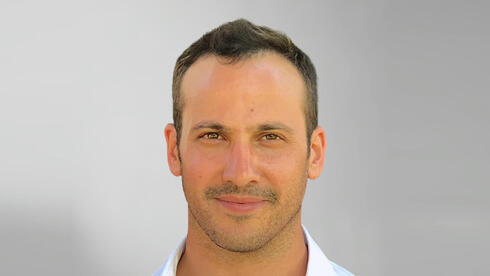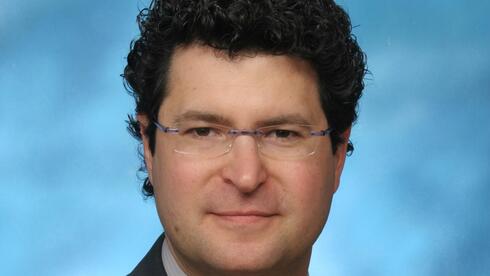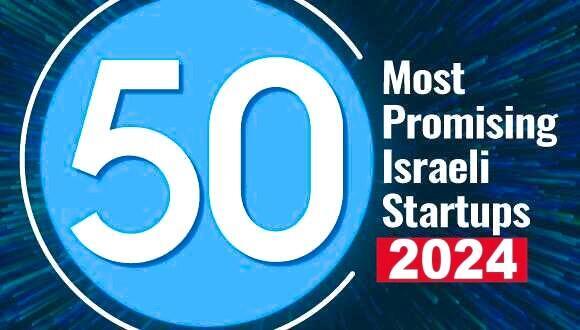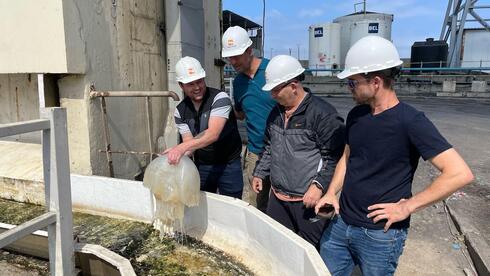
Boarding PassQortein's Quest: Turning jellyfish into a global food solution
Boarding Pass
Qortein's Quest: Turning jellyfish into a global food solution
The company has raised a total of $400,000 to create multiple functional applications based on jellyfish biomass
“We are in the midst of a global food crisis, global warming, heat waves, and drought, an ever-increasing global population, overfishing, and a constant threat to food security and consumer health,” explained Gal Admati, CEO and founder at Qortein. “Jellyfish are an untapped renewable resource that can be used for multiple functional protein applications in the food and other industries.”
According to Israeli company Qortein, jellyfish are an invasive species, such as to the shores of the Mediterranean, and cause a wide range of damage to the local ecosystem including local fishery and coastal-based industries. “We intend to tap this resource responsibly and sustainably and utilize jellyfish to promote consumer health and reduce the load on the ecosystem and in other words, promote a blue economy,” Admati continued. “The patent-protected technology is based on Prof. Shachar Richter’s technology for biomass extraction and processing from the University of Tel Aviv.”
1 View gallery
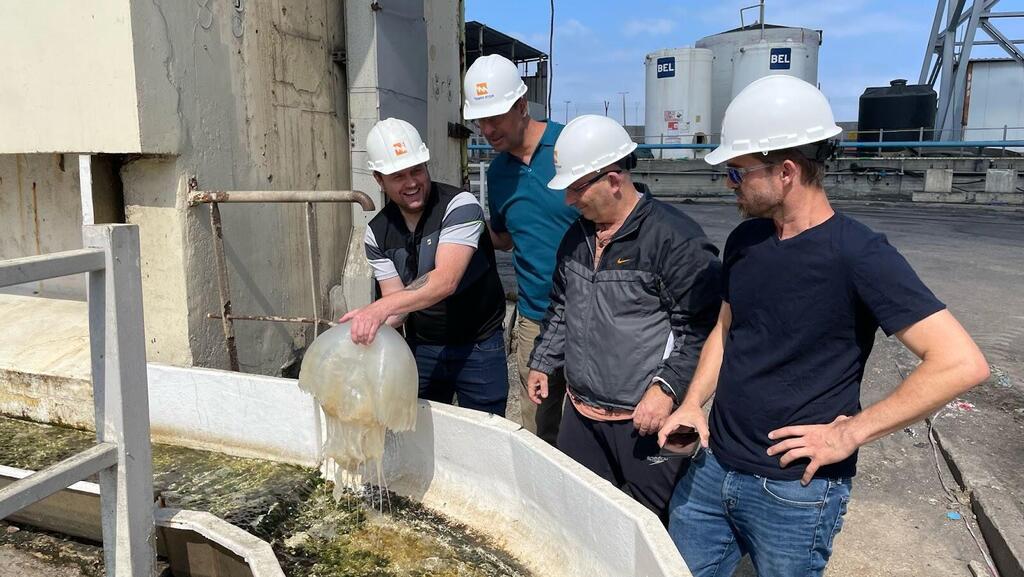

Boris Veltman, Itay Dana, Shachar Richter, Gal Admati at the IEC
(Photo: Shemi Bitan)
You can learn more about the company below.
Company Name: Qortein
Sector: Foodtech
Product/Service description: Our mission is to promote consumer health by providing a sustainable, un-tapped and natural source for multiple functional applications based on jellyfish biomass.
Jellyfish biomass can be used for processing technology for the food, nutraceutical, and nutricosmetics industries. The global population is on the rise. Sustainable, healthy, eco-friendly, food sources with low carbon footprint are needed more than ever to promote food security.
Founders and Bios:
Gal Admati, CEO and founder: With over 15 years of experience in the life science industry, is a multi-disciplinary technological manager with a demonstrated history of working in the medical device and agrifood sectors. Skilled in strategy, business development, commercial operations, marketing and sales, intellectual property development, team management, quality assurance and regulatory affairs, production and transfer to production techniques, and research and development.
Since 2022 Gal has led venture creation activities at InNegev Incubator, has founded two companies, and is leading an Agritech company in the field of food security.
Prof. Shachar Richter, co-founder: Department of Materials Science and Engineering & Center for Nanoscience and Nanotechnology, Tel Aviv University. Prof. Richter has over 25 years of experience in the development of novel materials from renewable resources, including Jellyfish. He is the co-author of more than 100 publications and patents, several of which have been commercialized.
Year of Founding: 2023
Last Investment Amount: $400,000
Last Investment Stage: Pre-Seed
Date of last Investment: October 2023
Total investment to date: $400,000
Investors: InNegev Incubator with support from the Israel Innovation Authority.
Current number of employees: 2
Open positions: Coming soon…
How was the idea born?
The idea was born following a visit by Gal Admati and Itay Dana to Prof. Shachar Richter’s material lab at the University of Tel Aviv, in which Prof. Shachar had developed a process for extraction of biomass from jellyfish, which he had put to use in various fields, namely medical and agritech. We thought that it would be a good idea to capitalize on the process and know-how and point the technology in the direction of sustainable sources of functional proteins for food, since jellyfish comprises mainly water and proteins.
What is the need for the product?
The need for sustainable sources and responsible use of resources in general and oceanic resources specifically is ever-present. The global population is expected to peak at around 10 billion people in 2050, given the current projections, this is unsustainable. The former, in combination with global warming effects and rising numbers of jellyfish blooms, which wreak havoc on coastal industries, such as power plants, fisheries, and desalination plants, and also local ecosystems, create a unique opportunity for a sustainable and “blue economy” food source that aims to improve consumer health and ecosystem sustainability through use of a food source that is low on pollutants and zoonotic diseases, that we have come to expect from land-based protein sources.
How is it changing the market?
The oral consumption market is under pressure at the moment and undergoing significant changes. Alternative proteins have seen a rise in traction in the past few years but still have a way to go and extensive capital to raise until they reach price parity with industry-standard alternatives. We believe that our solutions are exactly in the right place and the right time to bridge the gap between unsustainable and unhealthy consumption methods today and fully sustainable alternative proteins. We believe that there is room for all and that we can be there much faster and cheaper than alternative proteins while providing similar benefits. Our technology is innovative, low pathogen load, has no zoonotic diseases, is highly available, sustainable, offers a low carbon footprint, and is patent protected.
We intend to source the jellyfish from local jellyfish blooms such as the Nomadic Jellyfish, an invasive species that frequent our shores in Israel, and to partner with coastal industries both locally and abroad to utilize passive catch that invariably blocks water intake. We have been working closely with IEC (Israel Electric Company) to forge a mutually beneficial relationship, in which we use the Nomadic jellyfish caught in the cooling intakes, thus reducing landfill and waste and reducing our cost of goods.
How big is the market for the product and who are its main customers?
The market is huge, the process can be used for both aesthetics and oral consumption. The global market for gelatin is more than $6 billion with a CAGR of 10% and the global market for collagen is more than $10 billion with a CAGR of 9.6%. Main customers would be big pharma partners for collagen for aesthetic applications and food ingredient manufacturers for oral applications.
Does the product exist already? If not - at what stage is it and when is it expected to hit the market?
The product is in development stages, we have just entered the “Year 0” program funded by the InNegev incubator and supported by the Israel Innovation Authority. At the end of this year, we intend to enter the full incubator program. We are currently searching for design partners in the food industry, mainly food ingredient companies, to facilitate development and help us focus our development efforts. We expect the product to hit the market in late 2026.
Who are the main competitors in this sector and how big are they?
We aim to partner with large food ingredient companies. Our direct competitors are startup companies that are using jellyfish biomass and cell culture technologies for the aesthetic, food, and regenerative medicine industries such as Jellatech and Jellagen.
What is the added value that the founders bring to the company and the product?
Gal Admati, Founder and CEO, is a seasoned technological manager experienced in growing R&D to commercialization, experienced in life sciences, technological development, transfer to production and scale-up activities, and commercialization.
Prof. Shachar Richter, principal researcher and co-founder, is an experienced researcher with over 25 years of experience in material science.
Itay Dana, a food expert, has over 15 years of experience in the food, supplement, agro-tech, cosmetic and life sciences industries.
Alon Bornstein, our R&D Manager and second recruit, has a decade of experience in food-oriented startups and project management.
Our combined expertise gives us a huge advantage in the successful development and commercialization of our innovative technology.
What will the money coming in from the round be used for?
Qortein is an incubator company under the InNegev Incubator in southern Israel supported by the IIA. We are currently focused on R&D, and funds go to financing R&D-related activities including product development, process development, lab testing and equipment, and initial market validation.
In the "Startup Boarding Pass" section, CTech will cover the (relatively) small investments made in companies during the early stages of their existence - and the entrepreneurs and startups who have not yet had the opportunity to reveal their stories to the world. Please use the linked form and fill it out according to the guidelines. This form is intended for startups raising between $500,000 and $3 million from venture capital funds, angels, or official grants from Israeli and foreign institutions. If relevant, someone at CTech will be in touch for follow-up questions.



